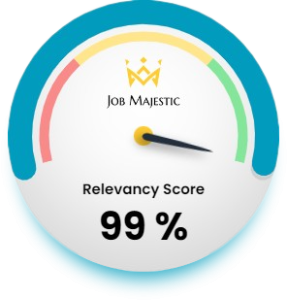The expected salary section on resume is easily one of the most complicated resume sections on a resume. Today, Job Majestic will be simplifying the concept and execution for you.
Should you include the Expected Salary?
Most companies in Malaysia usually request candidates to disclose their expected salary to better match their hiring budget. If you’ve been approached by recruiters before, your expected salary will definitely be on the list of questions they ask.
Here’s a general rule: If companies did not specifically request to know about your expected salary for the applied role, you should avoid including it in your resume. Here are a few reasons why:
- If the expected salary on your resume is too high, you’ll always be the first to get rejected even before receiving interview opportunities due to their limited hiring budget.
- Conversely, if your listed expectations are too low, you’re most likely to get low-balled – meaning companies will pay you less than what you truly deserve.
- Listing out a number early on will get your majestic resume gets rejected half the time, or highly reduce your ability to negotiate later on.
What if you have no choice but to disclose your expected salary? Here are a few simple pieces of advice on including the expected salary section on resume.
Expected Salary Section on Resume 101
1. Know Your Priorities
Honestly speaking, we all work to make a living for ourselves. When it comes to the expected salary section on resume, however, we’d usually advise candidates to not put too much emphasis on money when creating their resume.
In Malaysia, companies prefer to see your passion through your resume. Here’s how to keep the expected salary section simple and avoid giving off the “money-oriented” vibe:
- Understand that your resume’s primary aim is to share work experience and passion for the applied position. You should always be judged based on these criteria first.
- The “Expected Salary” section should be placed AT THE END of your resume, usually right before the Referral section.
- Do not create a separate resume page just to elaborate on your expected salary. Remember to steer the focus away from money at first.
Utilise your resume to showcase your energy and why you are the perfect person for the role. Once you’ve reached the confirmation stage, you will possess a higher bargaining power when it comes to your salary package.
2. Do Your Research
In HR, we’ve heard horror stories when it comes to candidates’ salary expectations. Here’s one takeaway – All kinds of expectations are generally welcomed, but it depends on how you JUSTIFY your expectations, i.e. why do you deserve x amount of salary.
Aside from listing out your own justifications, you must support your claims with adequate research and evidence. One simple way to understand the industry average salary for the role you’re applying for is through a salary calculator website.
Simply input your information such as the job title, your academic qualifications, and your location and these websites will show you the median salary for the job you are applying for.
Also, understand that different companies will have different budgets for the same role you’re eyeing. If you’re applying to a large company, feel free to increase your expectations and vice versa – but remember to justify using your skills, qualification, and experience.
3. Play Your Cards Right
Finally, the most important question of all – “How much should my expected salary be?”. Don’t worry, we got your back.
a. State your current/previous monthly salary. Only include your BASIC salary and do not add in additional benefits and bonuses.
b. State your expected Salary Range. Instead of stating a single figure, insert your expected salary range to provide flexibility.
Ensure that you have done adequate research on the said range. Also, make sure that you are willing to accept the lower end of the range.
c. Always leave a space for negotiation. Mention that your expected salary is negotiable based on the position and the benefits.
Expected Salary Section on Resume- Example:
“My current salary is RM3,000 per month. Based on my recent research on job type, location and industry average, my salary expectation is in the range of RM3,300 to RM3,700.
The expected salary is negotiable based upon job responsibilities, work arrangements, other benefits and advancement opportunities.”
4. Be Honest, Be Realistic
When stating your current or expected salary, make sure that you are honest with all parties, including yourself. Do not attempt to inflate your current salary as companies may cross-check your information with your past employers.
Everyone would love to have a higher salary, but being realistic also means being responsible when it comes to the amount of salary you deserve vs. the actual value you could bring to the organisation. Honesty is the best policy.
Closing Remarks
If possible, leave salary negotiation till later in the hiring process – especially after an offer has been made to you. Focus on securing job interviews first as it is easier to showcase your value vs what hiring managers see on your resume for 6 seconds.
The expected salary section on resume is only one of the many important parts of a resume. There are also other parts that you should focus on, such as the contact information section.
With a greater understanding of the expected salary section on resume, you are ready to create powerful resumes and ace the job applications for the best jobs in Malaysia.
Need more help on landing your dream job? Our Job Majestic Blog has all the interview and hr-related resources you’ll need to have an awesome career.







